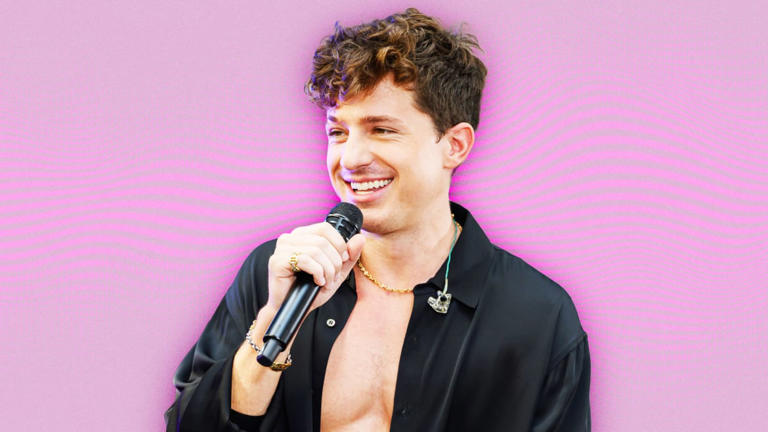
© Provided by The Daily Beast
What Happens When You Don’t Log Off Is Charlie Puth’s New Album
Charlie Puth is a living, vexing puzzle.
Here’s an undeniably talented, astute artist with a string of great songs and Grammy nominations. He’s amusing, even if his penchant for shock chortles results in more eye rolls than genuine laughter. He’s charming and usually overshares in interviews rather than adhering to boring, PR-approved soundbites. He has an impeccable pitch. And yet, the man can’t seem to get enough of his way when it comes to music. CHARLIE, Charlie Puth’s third studio album, was released on Friday and had undercooked, TikTok-baiting pop tunes that should have been so much more.
CHARLIE seemed like an intriguing concept at first—as Puth himself described it, it was an album “conceived on the internet.” He’s been documenting the production of these dozen tracks on TikTok for the past year and a half, offering listeners a glimpse into his process of crafting songs around odd sounds or instrumentals. It allowed the Berklee-educated musician to show off his skills, which came across as geeky and high-handed but largely succeeded in charming listeners to his musical nerd persona.
Unfortunately, TikTok may have dampened Puth’s vibe; spending months presenting yourself as some kind of eccentric music maestro only works if the result is truly impressive. Instead, CHARLIE is generic-sounding pop with too many undercooked tunes, most of which screech to a standstill after two verses and choruses. Like’s OK in some cases—sometimes it’s better to leave people wanting more—but TikTok’s preference for short attention spans has hampered Puth’s creativity and made him a lazier musician than he is. Simply ask Taylor Swift fans about the importance of a decent bridge.
For example, on “There’s a First Time for Everything,” Puth tears and twists his tongue through the punk-lite lines, sounding like Mark Hoppus at his perkiest but most rushed. “Marks on My Neck” also ends abruptly after two “Jessie’s Girl”-style verses and a drum fill before the second hook that would’ve played better as a pivotal moment rather than a hurried afterthought.
CHARLIE isn’t entirely without flaws. “Light Switch,” the lead single, is a funky, fully formed earworm that works; just ask any pop radio station in the country. Similar to “Attention,” the finger-snapping “Loser” contains a groovy bass beat as he ponders, “I’m a loser; why’d I have to lose her? / I’ll never recover, I’ll never be OK.”
To be fair, CHARLIE is a breakup record (rumoured to document his previous relationship with vocalist Charlotte Lawrence), but it’s not depressing. Puth, on the other hand, alleviates the tension in his subject matter by going all-in on the ’80s with largely joyful, bright, and synth-heavy compositions. On the bouncy “Tears on My Piano,” a foot-stomping bop with an easily singable hook, he smartly mocks himself for writing sad songs.”I just compose music for crying,” he laments. Meanwhile, his genuine attempts at balladry, like the piano-driven torch song “When You’re Sad, I’m Sad,” are a falsetto-flaunting snooze. The same can be said for album closer “Little More Drama,” which offers no musical thrills but does put Puth in a better mood. “I’m so delighted I finally understood I’m better off without you,” he sings. (I’m glad to hear you’re doing well, Charlie. Return to crafting better music now.)
If CHARLIE is any clue, Puth has yet to strike the correct pop chord (perfect pitch be damned). After breaking through in 2016 with his absolutely charmless debut album, Nine Track Mind, he stepped up a notch with 2018’s Voicenotes, which he oddly indicated in a recent interview he’s only 60 percent proud of, despite being his best work to date. That album was full of silky confidence and charisma, with appearances from Boyz II Men and Kehlani, and it was bolstered by bold musical choices and wonderfully nuanced poetry.
Unfortunately, Voicenotes was mostly overlooked, which may explain why we now have a gimmicky album era defined by little more than a subpar duet with BTS’ Jung Kook, a series of butt-baring thirst traps, and a concert done in the Metaverse. (At the very least, we may be relieved that CHARLIE is a step up from Puth’s “bad guy” phase in 2019, which included the singles “I Warned Myself,” “Mother,” and “Cheating On You,” none of which charted on the Hot 100. Even Elton John told him the tunes were terrible.)
Some have proposed that Puth follow in the footsteps of Ryan Tedder and concentrate his energies on writing hits for other artists. That’s certainly worked well for him recently—he penned and produced Kid Laroi and Justin Bieber’s song “Stay,” which topped the Hot 100 for seven weeks in a row after its release last year. Nonetheless, one can only hope that Puth would use his musical talents for good again. Perhaps he should take a break from TikTok first.